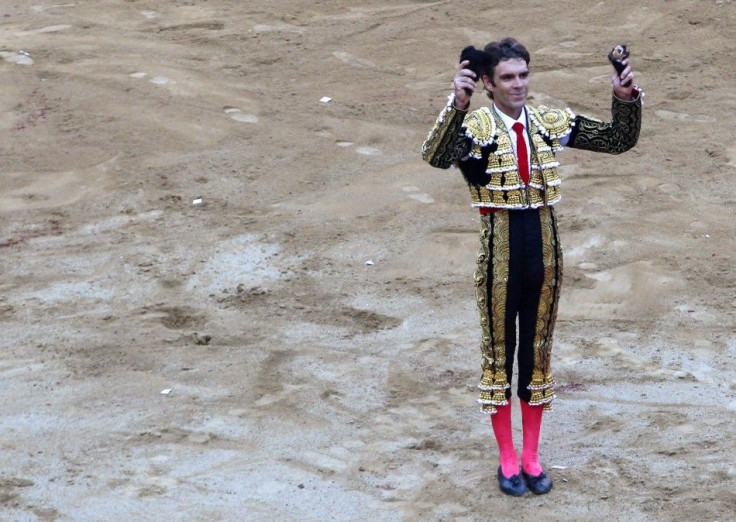Barcelona's Last Bullfight; The End of a Spanish Tradition in Catalonia

Catalonia's last bullfight took place on Monday. A sold-out crowd watched some of Spain's most famous matadors dance around charging bulls at the Moorish-inspired La Monumental arena in Barcelona.
The Parliament of the Spanish state of Catalonia banned the sport in 2010 after animal rights’ group Prou! (Enough in Catalan) collected nearly 200,000 signatures on a petition. The ban goes into effect on January 1, 2012, but Monday was the final event of the season.
Bull fighting is a national tradition in Spain, and many of the 20,000 or so spectators lamented the loss. Fans rushed into the area when the final bull was slayed, collecting dirt and fight posters as souvenirs.
World-famous bullfighter Jose Tomas was also lifted on the shoulders of those inside the ring and marched around the stadium.
But not everything was joyous, as animal rights activists gathered outside the arena, sparking clashes with fans. Police detained a number of people from the rally.
Despite rhetoric about animal cruelty, the bullfighting bans might also stem from a political struggle. Catalonia has long felt oppressed by Spain, and the autonomous community has tried to distance itself from Spain in the past.
The parliament has prohibited bullfights because it is a 'Spanish fiesta' -- the ultimate symbol of Spanish nationalism,” bullfighter Serafin Marin said, according to The Telegraph. “The ban has nothing to do with animal welfare.”
Marin is a native of Barcelona, and the famed bullfighter was given the honor of killing the last bull in Catalonia.
”Banning bullfighting in Catalonia is nothing more than an attack on liberty,” stated Carlos Nunez, president of Spain’s Mesa del Toro, a pro-bullfighting group. ”It’s the fruit of policies in Catalonia against bullfighting and all that is seen to represent Spain.”
The Catalan nationalism movement, also known as Catalanisme, is a separatist movement that began after the fall of Francisco Franco's dictatorship in the mid-1970s. Catalonia is extremely proud and protective of its national identity and has tried to minimize Spanish influence.
Catalonia has three official languages: Catalan, Spanish and Aranese, a regional dialect specific to the Aran Valley in the Pyrenees. Everything in the state is translated into both Catalan and Spanish, and in Barcelona, locals are notorious for refusing to speak Spanish to visitors.
Even after Spain's 2010 World Cup win, very few national flags were seen flying from windows in Barcelona, unlike in the rest of Spain.
But the bullfighting ban might also be economically influenced. The sport has been losing popularity in Catalonia for years, and La Monumental has only sold about a third of its seats for matches in the past decades, according to The Telegraph. And while the sport is popular among tourists, the cost of running a bullfighting operation made it uneconomical for small towns, where the number of bullfight-related events has fallen by 34 percent between 2007 and 2010, according to Spanish newspaper El Pais.
Catalonia still allows a sport called correbous, in which flaming torches are attached to a bull's horns as it is chased through the streets. The only other state to ban bullfighting in Spain is the Canary Islands.
© Copyright IBTimes 2024. All rights reserved.





















